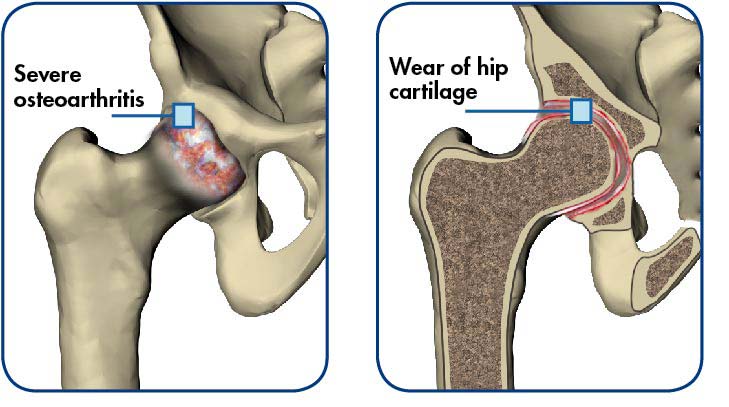Hip Surgery in Greece
Find the best clinics for Hip Surgery in Greece
No clinics available
Turkey offers the best prices Worldwide
Price: $ 218

WHY US?
At Medijump, we're making medical easy. You can search, compare, discuss, and book your medical all in one place. We open the door to the best medical providers worldwide, saving you time and energy along the way, and it's all for FREE, no hidden fees, and no price markups guaranteed. So what are you waiting for?

Free

Best Price

Widest Selection

Risk-Free
What you need to know about Hip Surgery in Greece

Hip surgery is a typical common surgical intervention tailored to relieve discomfort, increase mobility, and enhance lifestyle quality for people with hip problems. It's often proposed when non-invasive remedies fall short in managing hip pain caused by medical conditions such as arthritis, osteoarthritis, or a fracture. This method involves the extraction and replacement of the deteriorated parts of the hip joint with artificial constituents. Over the past few years, progression in medical tech has made the Hip Surgery increasingly safe and effective, with a majority of recipients noticing substantial improvements in their ability to move and life quality after the operation.
What is the cost of Hip Surgery in Greece?
The expense related to a Hip Surgery may fluctuously differ based on multiple variables, like the geographical positioning of your health center, the know-how and skill set of the operating surgeon, and the intrinsic details of your operation. Normally, the comprehensive expense bundles the surgeon's compensation, medical facility expenses, anesthesiologist's costs, and the price tag of the replacement hip joint. Nevertheless, it's vital to point out that this constitutes an intricate health-related intervention, and extra outlays for diagnostic evaluations, medicine, and rehabilitative training might also be a factor.
What does a Hip Surgery Procedure Involve?
Depending on your condition, your options include total hip replacement (arthroplasty), hip resurfacing, arthroscopy, and osteotomy. The most common hip surgery is a total hip replacement, in which your hip joint is removed and replaced by an artificial joint made from metal and plastic components.
Hip Surgery ordinarily encompasses several critical stages. The initial phase consists of anesthesia administration, which guarantees you don't undergo any pain throughout the operation. Once sedated, the medical professional performs a cut atop the hip joint to gain entry to the injured hip sections. The harmed ball segment of the joint is subsequently detached, while a substitute ball linked to a stem is situated within the femur's hollow core. Following that, the injured cartilage layer of the socket is displaced and swapped with a metal socket. A plastic dividing piece is then placed amongst the fresh ball and socket to allow an unimpeded, sliding surface.
The operative process is intricate and demands expertise from an advancedly trained and adept orthopedic physician. Your medical practitioner will equip you with exhaustive preparatory directions, inclusive of required alterations to diet or medication. Following the operation, your healthcare squad will be vigilant of your vital signs and pain threshold, and distribute advice for postoperative maintenance while in the comfort of your home.
How Long Should I Stay in Greece for a Hip Surgery Procedure?
Your length of time spent in Greece is primarily influenced by your personal health state and the particular aspects of your Hip Surgery. You may need to stay in the hospital for 2 to 4 days, but this depends on which type of hip surgery you underwent, as well as your age, health, and physical conditions. In general, you will need to stay in Greece for around 14 weeks to attend follow up checkups with your surgeon. During the follow-up checkups, your doctor will remove your stitches.
What's the Recovery Time for Hip Surgery Procedures in Greece?
Rehabilitation duration following Hip Surgery can significantly differ, dictated by aspects like the individual's age, general wellbeing, and willingness to adhere to post-operative recuperation. Typically, individuals anticipate resuming routine tasks between three to six months. Yet, total recovery, characterized by the capacity to partake in energetic activities and sports, may require approximately a year. The initial weeks post-procedure are critical, with the body requiring time to recuperate, and mobility and power are progressively restored via physiotherapy.
You should be able to do light activities within three to six weeks, but you may still experience a little bit of soreness and discomfort. Within 10 to 12 weeks, you can do most of your regular activities, such as taking long walks and dancing.
What sort of Aftercare is Required for Hip Surgery Procedures in Greece?
Post-Hip Surgery care in Greece involves the utilization of a blend of physical rehabilitation, administration of pain relief medicine, and meticulous observation of surgical wounds for potential infection symptoms. It's recommended for patients to partake in a physical rehabilitation regimen designed to regenerate power and agility in the hip joint. It's expected to experience some level of discomfort that could however be controlled effectively with prescribed drugs.
A physical therapist will show you several different exercises to strengthen the muscles around your hip, make sure to practice these exercises as recommended by your physical therapist. Your surgeon may give you a post-operative instruction, including wound care and dietary requirements. During your recovery period, you will need to schedule follow up appointments with your local doctor.
It's imperative to keep up with routine medical visits post-surgery, giving the healthcare professional the opportunity to keep track of your recovery and ensuring the optimal functioning of the hip joint. During these sessions, your recovery progression will be gauged and any necessary tweaks to your post-surgery care plan will be conducted. Some patients might need support devices, such as crutches or walking aids during the initial weeks following surgery.
What's the Success Rate of Hip Surgery Procedures in Greece?
Operations including Hip Surgery tend to be very effective. The vast majority of patients report significant pain relief and improved mobility following surgery. Hip surgery has been shown to be a safe and efficient treatment, with a success rate of 90% to 95%.
Yet, the final result of the procedure depends on a number of variables, such as the patient's age, general health, the degree of hip damage, as well as the effectiveness of postoperative rehabilitation. Remember that artificial joints are not as strong or durable as real ones, despite the fact that they work just as well. They might deteriorate with time, possibly necessitating replacement procedures in the future.
Are there Alternatives to Hip Surgery Procedures in Greece?
Those who do not want to undergo surgery have several nonsurgical options. Primary substitutes for Hip Surgery methods typically involve non-invasive strategies focused on pain control and function enhancement, such as physiotherapy, maintaining a healthy weight, and utilizing supportive aids. Incorporating medicines such as non-steroidal anti-inflammatory drugs (NSAIDs), or shots filled with corticosteroids or hyaluronic acid could be other viable choices.
Occasionally, less intrusive surgical interventions, like arthroscopy or hip resurfacing, can be evaluated. Having an all-encompassing conversation about these substitutes with your healthcare specialist is essential to grasp the expected advantages, risks, and results, enabling you to make a knowledgeable decision regarding your treatment.
What Should You Expect Before and After the Procedure
Ahead of your Hip Surgery, your medical specialist will carry out a comprehensive assessment, this incorporates blood analyses and imaging tests. You will have a conversation with an anesthesiologist who will clarify your choices for anesthesia and enlighten you about any possible dangers. You will also be instructed to adhere to precise preparation guidelines such as refraining from food and handling your medications appropriately.
Following the Hip Surgery, your vital signs will be under detailed scrutiny in a post-operative care space until the influence of the anesthesia diminishes. Experiencing pain is normal, but it can be alleviated with prescribed drugs. It is probable that you will commence rehabilitation activities the day subsequent to the procedure to fortify your joint and guard against blood clot formation. Based on your healing progress, you could be permitted to leave for your residence or you may be referred to a recuperation facility.
In terms of symptoms, problems and pain with your hips can limit your movement. After successful hip surgery, your mobility will be increased and you will be able to enjoy doing activities you used to enjoy before you started having hip issues.
What are the Potential Risks of Hip Surgery?
Just like any surgery, hip surgery carries some side effects and risks, such as:
- Infection
- Blood clots
- Fracture
- Change in leg length
- Dislocation
- New hip joint wearing out over time or becoming loose, which may necessitate another surgery
Discussing every potential danger and complication with your health care professional is crucial to gain a thorough comprehension of the procedure.
Whilst the information presented here has been accurately sourced and verified by a medical professional for its accuracy, it is still advised to consult with your doctor before pursuing a medical treatment at one of the listed medical providers
No Time?
Tell us what you're looking for and we'll reachout to the top clinics all at once
Enquire Now

Popular Procedures in Greece
Prices Start From $218

Prices Start From $218

Prices Start From $100

Prices Start From $2,050

Recommended Medical Centers in Greece for procedures similar to Hip Surgery

- Interpreter services
- Translation service
- Religious facilities
- Medical records transfer
- Medical travel insurance
- Health insurance coordination
- TV in the room
- Safe in the room
- Phone in the room
- Private rooms for patients available

- Interpreter services
- Translation service
- Religious facilities
- Medical records transfer
- Medical travel insurance
- Health insurance coordination
- TV in the room
- Safe in the room
- Phone in the room
- Private rooms for patients available

- Interpreter services
- Translation service
- Religious facilities
- Medical records transfer
- Medical travel insurance
- Health insurance coordination
- TV in the room
- Safe in the room
- Phone in the room
- Private rooms for patients available

- Interpreter services
- Translation service
- Religious facilities
- Medical records transfer
- Medical travel insurance
- Health insurance coordination
- TV in the room
- Safe in the room
- Phone in the room
- Private rooms for patients available

- Interpreter services
- Translation service
- Religious facilities
- Medical records transfer
- Medical travel insurance
- Health insurance coordination
- TV in the room
- Safe in the room
- Phone in the room
- Private rooms for patients available
